(heads up: this post blends together some of the visual novel stuff we talked about last week and also brings in a completely unrelated game)
The amount of games I’ve played that were made using Ren’Py has reached 15 after playing Doki Doki Literature Club and Save the Date. These range from sci-fi political dramas, horror games, dating sims, and of course, meta-experiences. Ren’py was designed with visual novels in mind, and does an excellent job of providing a strong base for people to build off of. However, because of the way it stores data, it also lends itself to meta games as well. Ren’py stores its saves in your local files, allowing for games to play with data in a way that not many others can.
Even though I knew going into Save The Date that it was going to be a meta-game, I was still surprised at how the game was slowly developing from “Save The Girl” to “Why are you trying to Save The Girl.” The transition was done rather smoothly as well. At first, it seems impossible to save Felicia, but as the story progresses, you start to learn more about her, and there are choices where there weren’t before. The tipping point is when the option “Change in plans. We can’t go out to dinner tonight, It’s too dangerous” shows up. From there, the player must use the knowledge The path to “win” the game is only accessible by referencing the fact that you’re in a game.
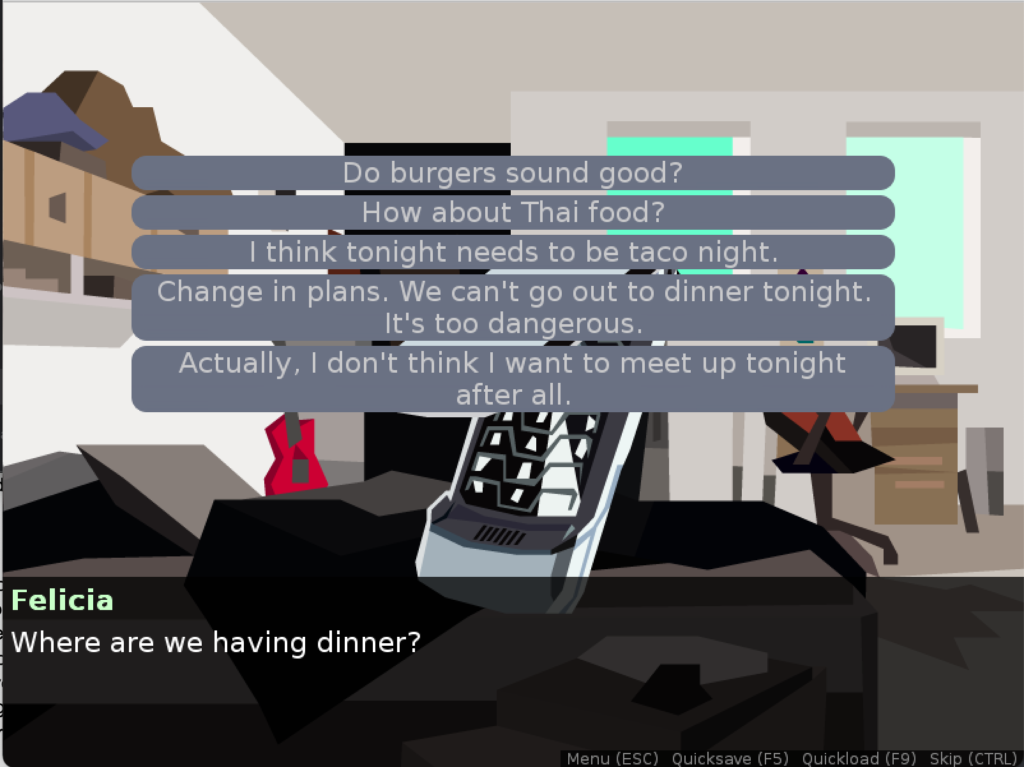
Now, one path to win is through the game’s choices given in game. The other is through manipulating the game files themselves. Save the Date’s hacker ending requires the player to mess with their files in creative ways. Messing with the local files gives the player a lot of power that are aren’t typically encouraged to use. Visual novels typically do not give the player a ton of power, so breaking the norm through unconventional means allows for players to think about what really makes up a game. Doki Doki also has the player mess with the local files, as the only way to defeat Monika is to delete her character file. It’s empowering and cool to mess with the game files, and I really wish more visual novels I’d played had done something similar. Most other Ren’py games wrench control from the player through their UI design, instead of giving them more power through file manipulation. One of my personal favorite examples of enforcing limits using UI is the game Echo.
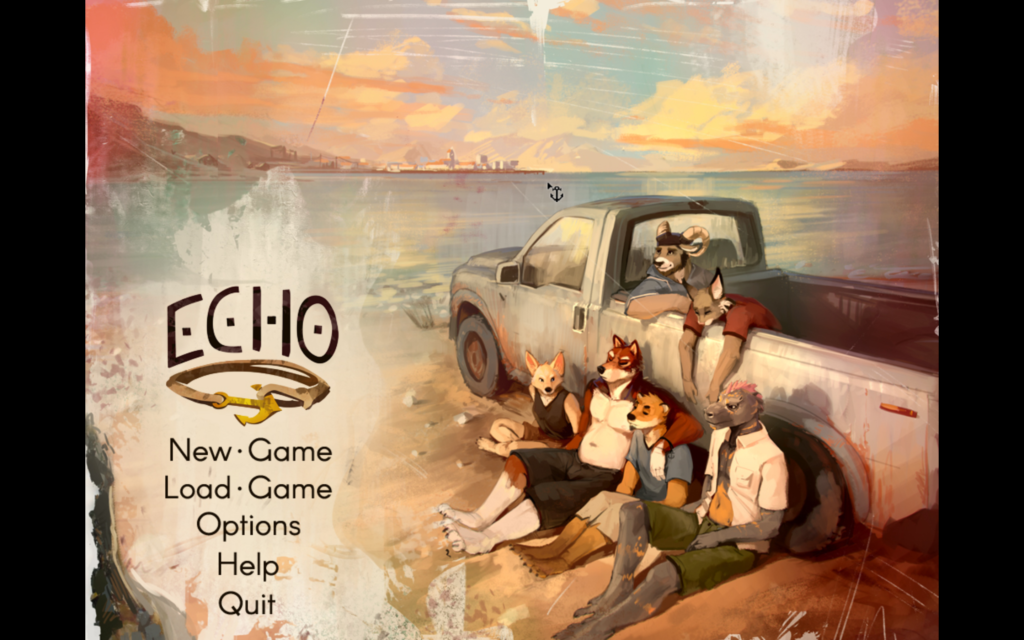
In Echo, you play as Chase, an otter who grew up in the titular town of Echo. He goes back to the town over spring break in order to reconnect with his friend and conduct a journalism project on the town’s past as a mining town. However, as he studies more of the town’s past, he starts to uncover some dark secrets about Echo and his friend group. It is eventually revealed that Chase has been possessed by the ghost of Samuel, a mountain lion, who lived in Echo during the 1920s. Samuel has been influencing all of Chase’s decisions the second he stepped foot back in Echo. This is what the game uses to explain how Chase has been acting during most of the game. Every choice that the player makes is actually the one Samuel is influencing Chase to take. It’s an extremely cool way to explain the player’s influence on the world of the game. During one of the routes of the game, Chase is trying to talk to his friend group about a tragic accident that occurred when they were all younger. Chase doesn’t want to fracture the friend group more than it already has, but Samuel has other plans. He drives Chase to isolate one of the members of the group, Flynn. This is done through the choice shown below, where the player is forced to comply with Samuel’s will. All the power is taken away from the player. A similar choice is given in Doki Doki, where the screen becomes filled with just Monika as an option.
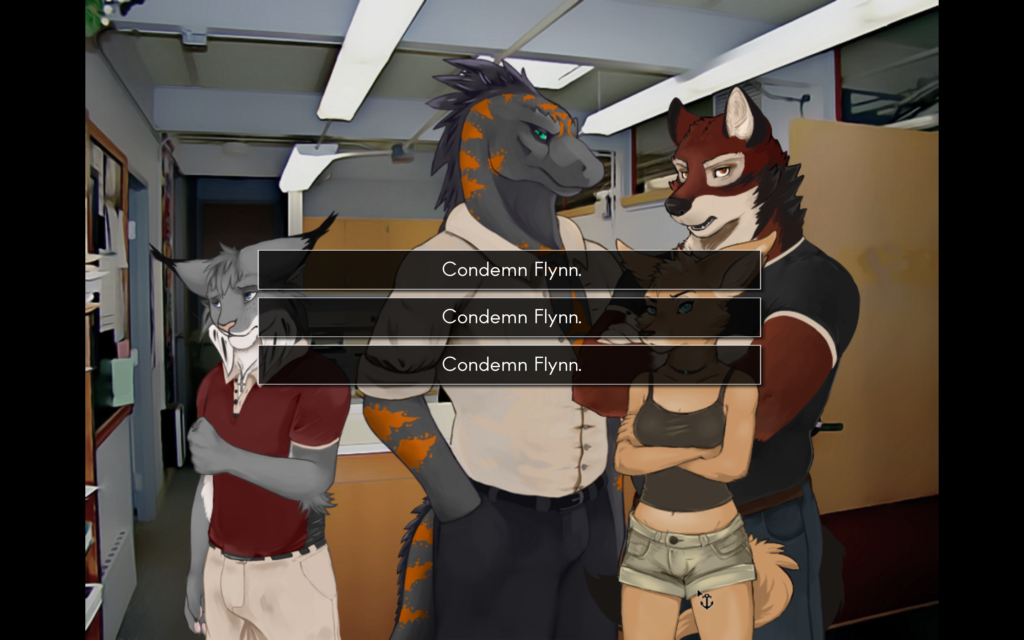
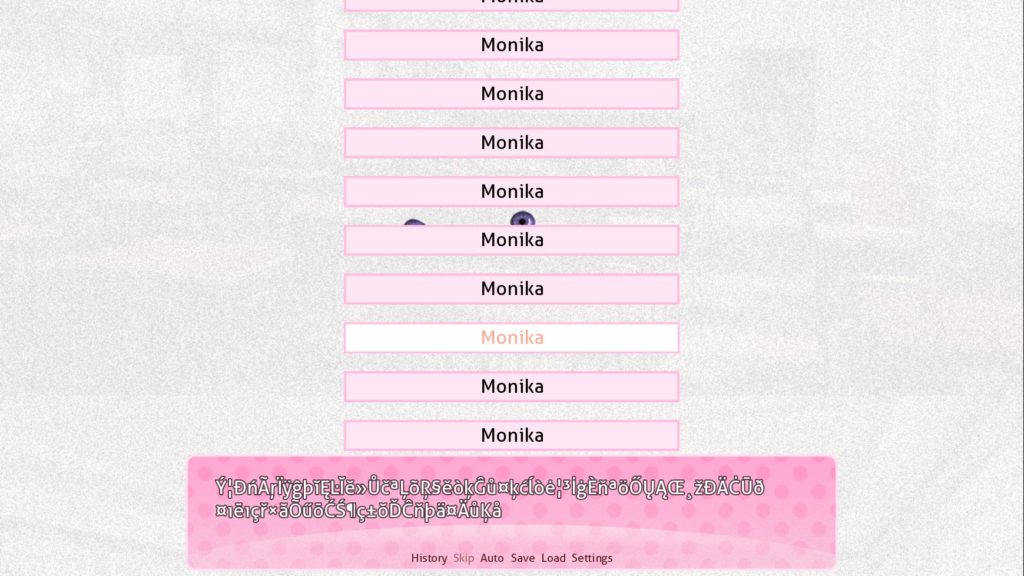
It’s only later in the Echo, after Chase finally gets away rom Samuel’s influence, that he’s able to choose something for himself. Jenna, a fennec fox, asks Chase what kind of music he wants to listen to. The player is given a prompt with a bunch of different genres, but no matter what the player chooses, Chase himself refuses to choose, and offers the choice back to Jenna. This time, control is taken away from the player in a different way, but the loss of agency feels ok. The storyline of Echo ties Samuel and Chase’s relationship to the game elements that the player uses to interact with the game. It may not be as meta as Doki Doki or Save the Date, but it still poses interesting questions regarding player choice in visual novels.
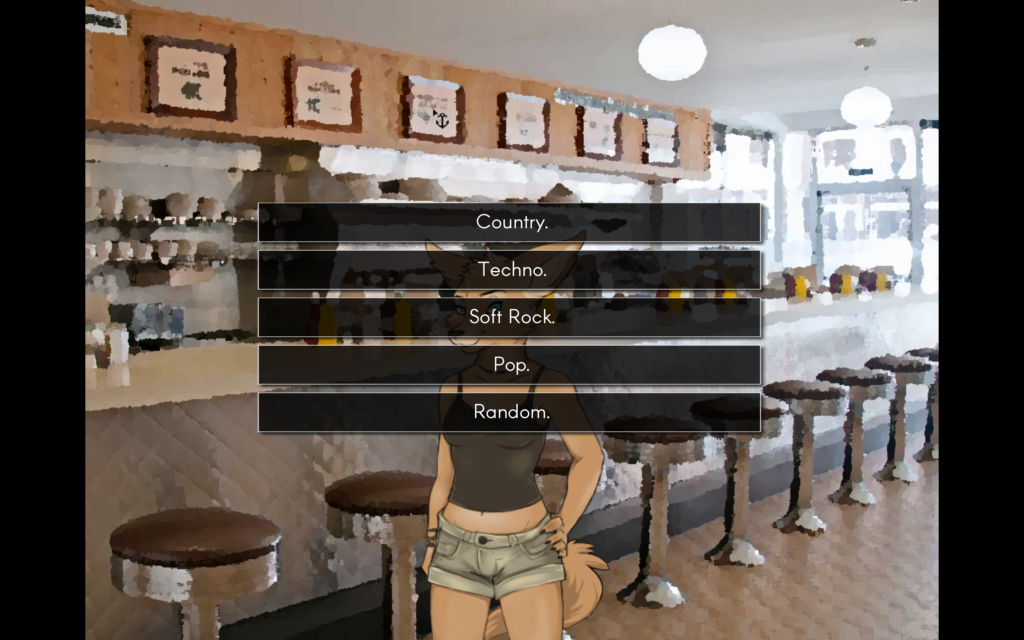
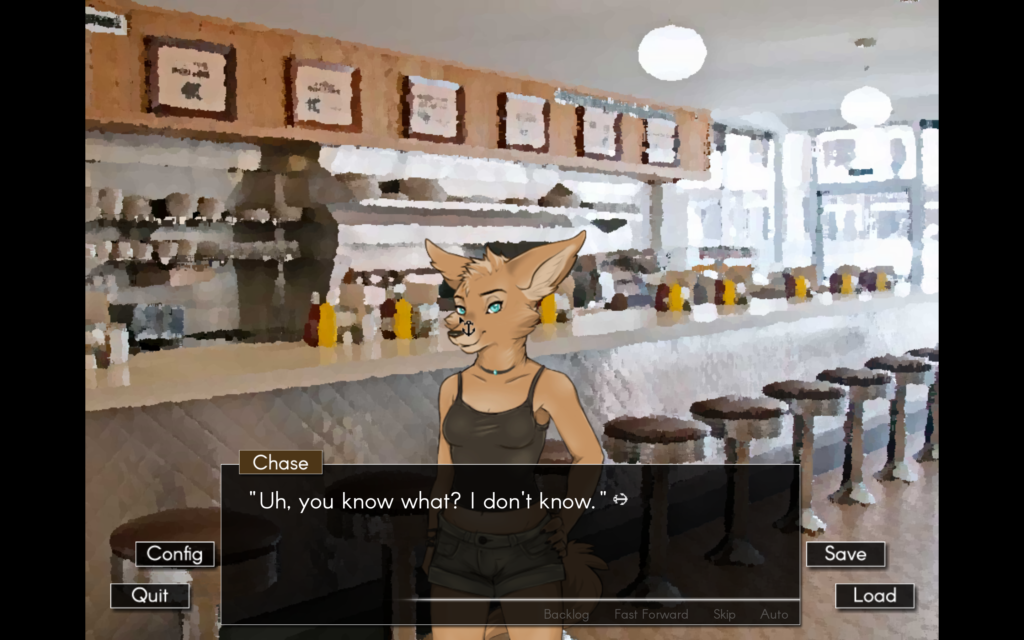
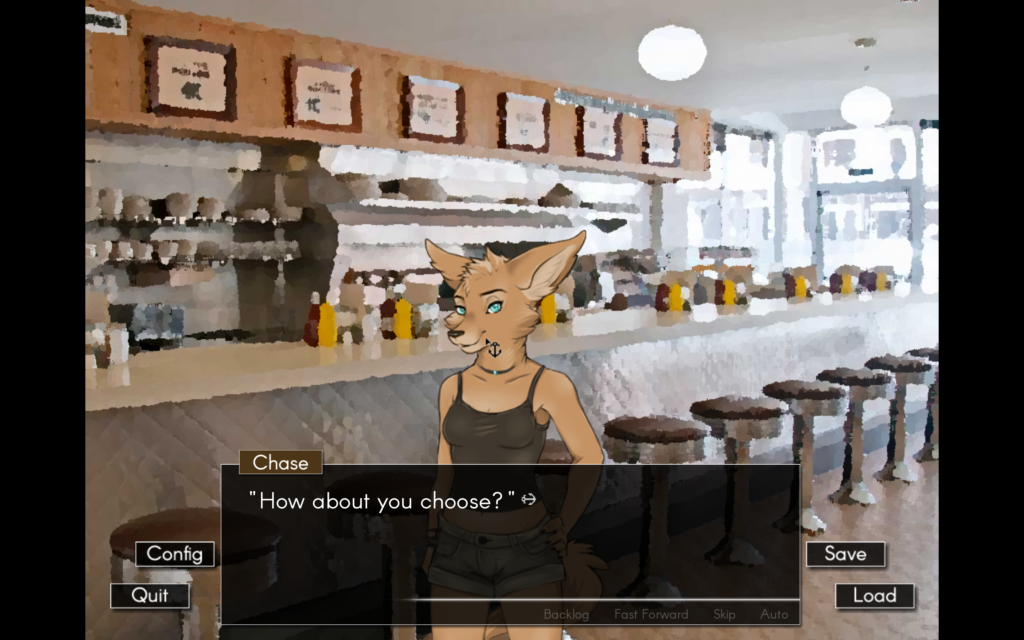
Echo bends the limited user interface of Ren’py to its will in a similar way to how Doki Doki Literature Club and Save the Date do. Agency is super important in video games, and understanding when to limit player power and when to increase it is extremely important for any game designer. Ren’py provides a large amount of tools at its disposal to both increase and limit player control, and I enjoy seeing how different games push the limits of this engine.
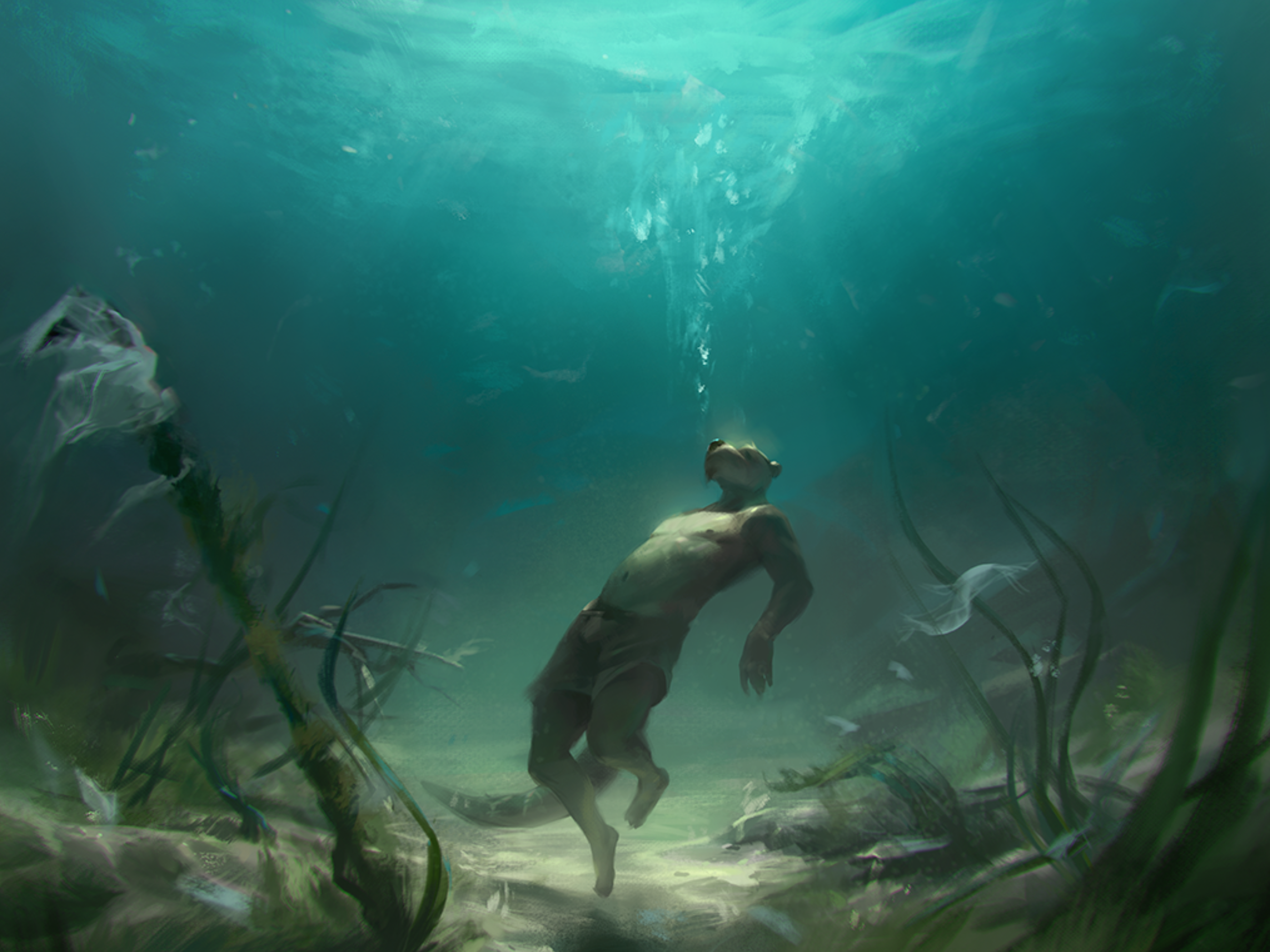

Echo seems like a really cool game! I like how you talk about Ren’py’s strengths in relation to the games we’ve played and a new game as well. It makes me wonder what other things you can do in Ren’py that’s intrinsic to that engine, similar to how we’ve been talking about what medium-specific things we can do with games. Similarly, what other things can we do in other engines to inform the meaning of the games played with them? I like how you’re showing that the visual novel format, a format that usually has limited or small choices, can have its meaning built into the code and the stories themselves with how it lets the player (and characters) deal with choices and agency.
Hi! Absolute proponent of Ren’Py here, probably why I immediately clicked on this blog post. I think there is definitely a degree of underrating when it comes to the genre and medium of the visual novel, and I think you’ve highlighted this here perfectly–visual novels can use the medium to their advantage to mimic several aspects of life and also to create their own mechanics when it comes to lack of agency versus agency in narratives. I feel like visual novels are too often discounted as ‘just being a story with pictures’, because the interactivity adds a sense of responsibility for the player–or even takes this responsibility away, depending on the message of the visual novel itself. The best visual novels could literally not stand as either ‘just novels’ or as any other genre, because they use the medium so flawlessly that the intricacies of the narrative and the game itself are inseperable.
As someone new to videogame design and experimenting with a lot of different engines, I think this perspective is important. Not only should I be thinking about why I might like to program in a certain engine, but why might someone want to PLAY a game from a certain engine? As you and others have mentioned, the storage of Ren’Py allows for unique medium-specific and engine-specific mechanics, and thinking about exploiting more “back-end” and not user-facing aspects is now top-of-mind!
It’s interesting to know that Doki Doki’s playing with file manipulation was thanks to the options of Ren’Py specifically. I had always wondered how it was actually able to pull off such a unique and meta mechanic, but I guess it’s thanks to this program that it was able to succeed in that regard. Since DDLC brought that technique to the limelight, I could definitely see file manipulation (and more meta UI stuff as you mention) being used more in the future, as visual novels grow in audience and scope through Ren’Py.